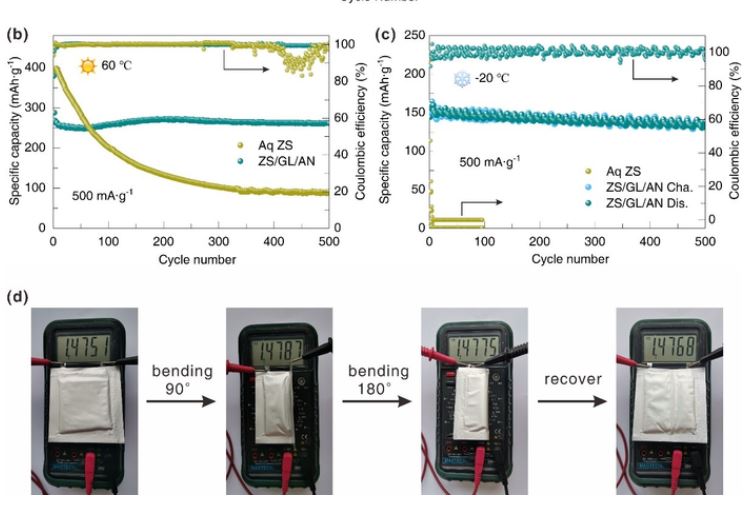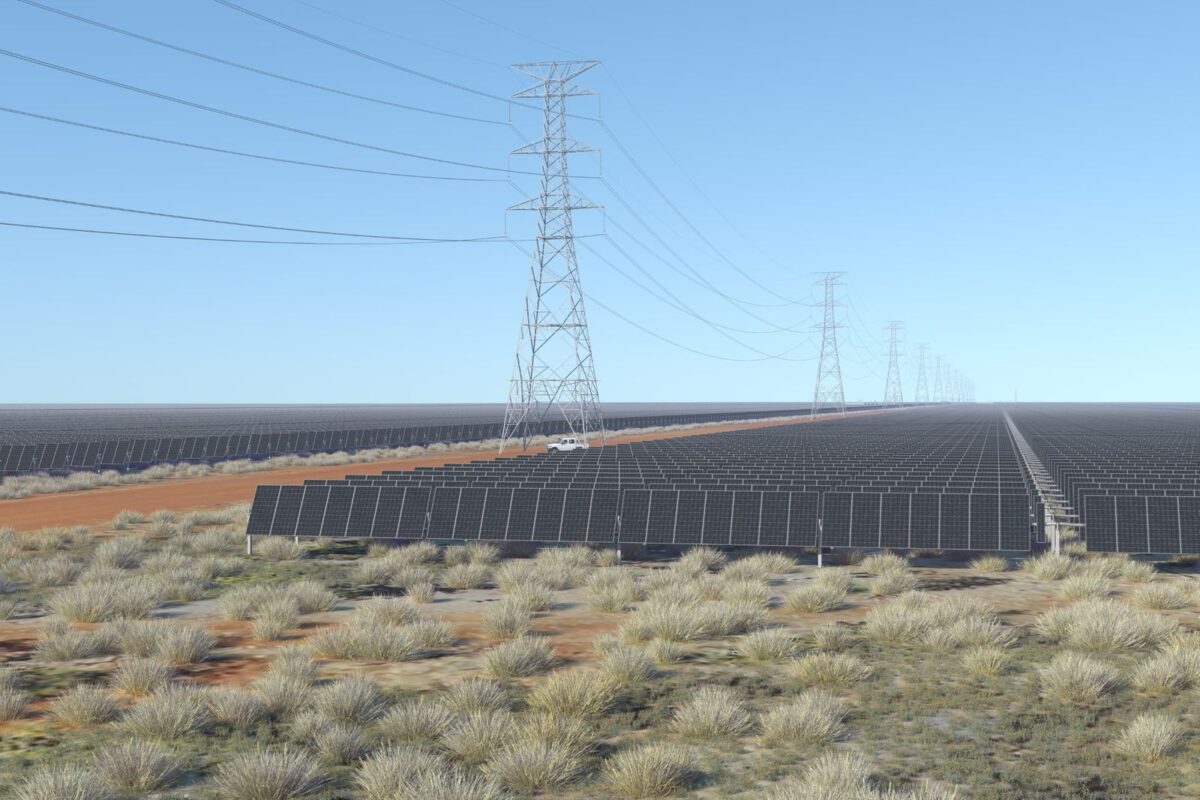From pv magazine Global
Zinc-ion batteries have the potential for good energy storage performance out of cheap, abundant materials. Their performance and stability, however, remain a major hurdle to overcome in order to bring them closer to a wider commercial maturity. This storage technology, on the other hand, offers the advantage that, at the industrial level, it could potentially use many of the manufacturing processes already developed for lithium-ion batteries, making them far easier than other materials to scale up.
With this in mind, scientists from the Chinese Academy of Sciences have developed an aqueous zinc-ion battery based on a special hydrogel electrolyte that is claimed to offer more stability and larger capacity.
The electrolyte was made with polyacrylamide (PAM), zinc sulfate (ZnSO4), glycerol (GL), and acetonitrile (AN). These compounds are said to offer remarkable mechanical properties, high ionic conductivity, and modulated bonding interaction. Furthermore, the researchers added acrylamide (AM) and N,N ‘-methylene bisacrylamide (MBA) into the mixture to address the typical issue of zinc-ion batteries — the poor stability and performance in the wide temperature range of -20 to 60 degrees Celsius.
“The copolymer of acrylamide and N,N ‘-methylene diacrylamide is the 3D framework of hydrogel electrolyte, and zinc salt is the zinc source,” they explained. “The copolymer increased the proportion of intermolecular hydrogen bond between copolymer and water molecule, but decreased the proportion of intramolecular hydrogen bond between water molecule. The bonding interaction regulation can reduce the chance of freezing at low temperature and evaporation at high temperature, which is beneficial to expand the operating temperature range.”
The battery showed high cycling stability of over 3,000 cycles, a high reversibility thanks to a Coulombic efficiency of up to 99.5%, and electrochemical performance of 185 mAh·g over 10,000 cycles. “Another advantage of this hydrogel electrolyte is its good mechanical properties for flexible device applications,” the research team emphasised. “The voltage of the zinc-ion battery device remained constant after it was bent at different angles.”
The battery was presented in the paper Bonding interaction regulation in hydrogel electrolyte enable dendrite-free aqueous zinc-ion batteries from −20 to 60 °C, published in the Chemical Engineering Journal.
This content is protected by copyright and may not be reused. If you want to cooperate with us and would like to reuse some of our content, please contact: editors@pv-magazine.com.









1 comment
By submitting this form you agree to pv magazine using your data for the purposes of publishing your comment.
Your personal data will only be disclosed or otherwise transmitted to third parties for the purposes of spam filtering or if this is necessary for technical maintenance of the website. Any other transfer to third parties will not take place unless this is justified on the basis of applicable data protection regulations or if pv magazine is legally obliged to do so.
You may revoke this consent at any time with effect for the future, in which case your personal data will be deleted immediately. Otherwise, your data will be deleted if pv magazine has processed your request or the purpose of data storage is fulfilled.
Further information on data privacy can be found in our Data Protection Policy.